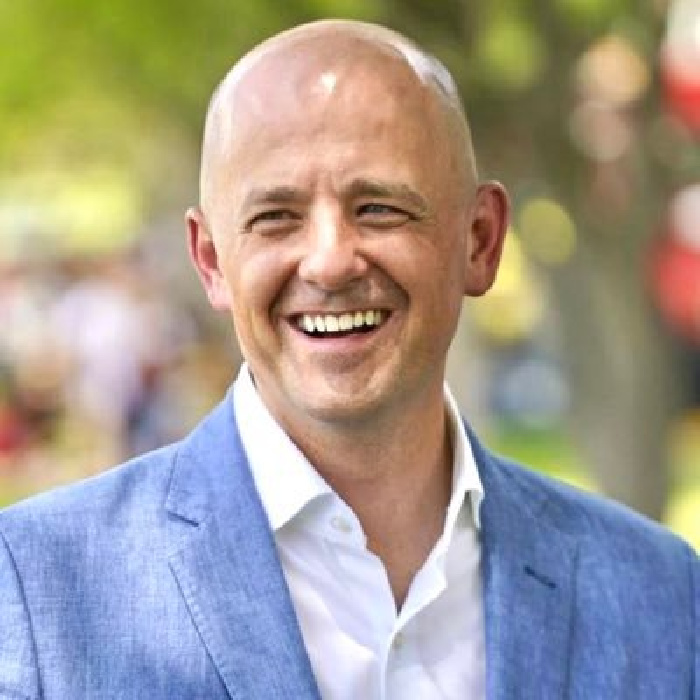LGBT+/SSA Latter-day Saints who are “all-in” (fully committed to Jesus Christ, His Church, and revealed doctrine) are engaging less with public conversations about their experiences, for multiple reasons. This is partly due to exhaustion with patronizing pushback from other LGBT+/SSA individuals and “allies.” The desire for privacy also arises from personal revelation, an increased focus on other aspects of life, and a desire to avoid “story-weaponization” or becoming a “poster person.” With less public visibility, it is important for all-in LGBT+/SSA Latter-day Saints to know that they are not alone on their paths and that more people are thriving in the Church than they’ll ever hear about. It’s also important for bystanders to realize that the public conversations and controversies about the Church and LGBT+/SSA issues often do not represent the lived experiences of those finding purpose, meaning, and joy while fully committed to the Gospel and their covenants.
____________________
In my work as an Inclusion Advisor at BYU, I’ve noticed a fascinating trend over the past few years. Latter-day Saints who experience same-sex attraction (SSA), gender dysphoria, or identify as LGBTIA+ who hold more traditional, orthodox, or conservative views on sexuality and gender, have increasingly become reluctant to openly share their stories and beliefs.
In private conversations with me, these individuals will talk about their hard-won testimonies of the divine plan of salvation, the doctrine of eternal marriage, the principles found in the Family Proclamation, and the importance of the covenants they’ve made with God. These members earnestly strive to align their lives with God’s will and prophetic teachings. They’ll tell me how their relationship with Jesus Christ, as well as loving relationships with friends, family, and mentors, have helped them overcome feelings of shame and fear. Though they’ve spent time “on the fence” wrestling with their options, they have ultimately decided to firmly commit to Christ, His commandments, and His Church. To use the term Gary Sabin and Morgan Jones have popularized in our faith community, these people are “all-in.”
In talking about patterns I’m seeing among all-in LGBT+/SSA Latter-day Saints, it is not my intention to ignore or criticize the experiences of the people traveling less orthodox paths, or those “on the fence.” There are important things we can learn from all of our LGBT+/SSA siblings, including individuals whose beliefs, goals, and behaviors do not align with church teachings. I’m focusing here on a few observations about one less acknowledged group to whom I have unique access.
I’ve been publicly open for ten years about my own experience as a gay/SSA Latter-day Saint and my testimony of Jesus Christ and His Church, including its teachings on marriage, family, and gender. Every semester I get to interact with hundreds of different people who are navigating their own experiences with same-sex attraction (SSA), gender dysphoria, or who identify as LGBTQIA+. To everyone I’ve met on this journey, I want to thank you for sharing your stories, beliefs, and hearts with me.
Some of the all-in LGBT+/SSA Saints I’ve had the opportunity to connect with are single while others have been married in the temple and have children; it has been inspiring to hear about the meaning and joy they’ve found on their journeys. Yet when I ask them if they’d be willing to share their stories and perspectives publicly or even just with other individuals in similar circumstances, they are becoming quicker to decline. More and more, all-in Saints do not feel comfortable sharing their perspectives publicly, even here at BYU. It’s becoming increasingly challenging to find all-in individuals willing to be on classroom panels, participate in research studies, or even just connect with other people in similar situations.
I’ve noticed the same pattern as I’ve worked with the Church on projects related to sexual orientation and gender identity. I’ve talked to these Saints from all around the world, some as young as 13 and others in their 70s. Even though so many people have come out of the woodwork to share their personal stories with me, when it comes to invitations to share their perspectives with others through focus groups or articles for church publications, I’m receiving more and more polite refusals.
I believe this trend has implications in how we view the LGBT+/SSA Latter-day Saint experience generally. When all-in stories aren’t represented in news articles, in academic studies, in podcasts/books, on social media, and even in religious settings, we don’t get a full picture of the diversity within the community. As a result, all-in Saints feel even more alone and withdraw further, which then perpetuates the trend even more—e.g., “No one is going to believe me if I am the only person sharing this perspective. If I’m the only one sticking my neck out, I’ll take all the fire.” I’m privately hearing from more all-in Saints than ever before, even though I’m seeing their influence in public spaces less.
It’s fair to point out the Church itself has sought to highlight all-in voices in its own efforts, but I would say that the most relevant and influential conversations about these topics are not happening on official church channels, but rather on social media, in community organizations, in online newspapers/magazines, and among family and friends. It is in these settings where I think the all-in voices are pulling back.
So, how do all-in LGBT+/SSA students respond when I let them know just how many other students, faculty, and other church members share their experiences, convictions, concerns, and goals? They are slow to believe me. Often they will express a desire to meet other all-in peers but then eventually choose not to when an opportunity arises. In fact, these students are showing up less to BYU LGBT+-related events, and when I talk to them about other campus or community resources, they are grateful for the information but often don’t end up participating. This was not the case even four years ago.
Why all the hesitancy and reluctance?
Some people may assume that we hear less from those who fall in this all-in group because it’s a decreasing population overall—and there are simply fewer all-in LGBT+/SSA Latter-day Saints than in the past. This has not been my experience and observation. In fact, I’m privately hearing from more all-in Saints than ever before, even though I’m seeing their influence in public spaces less. Some people also suppose that the only reason all-in individuals aren’t sharing their perspectives is denial, shame, and internalized homophobia/transphobia—factors which likewise cannot explain everything we are seeing.
So what is going on?
Though there are many more complexities than could be outlined in a single article, I’d like to point out seven more common reasons all-in Latter-day Saints may not be speaking up—all of which receive little to no public attention.
1. Personal Revelation
Some all-in LGBT+/SSA Latter-day Saints feel spiritually guided not to share their stories and perspectives publicly. To those in this situation, please know that you have my absolute support as you follow the revelation you receive. There could be many reasons God has given you that direction and it’s not my place—or anyone else’s—to question that inspiration.
2. Patronizing Pushback From Other LGBT+ Individuals
Some all-in LGBT+/SSA choose not to share their perspectives because of the messages they hear from other LGBT+/SSA people. If I could consolidate sentiments I sometimes hear from individuals who have chosen less-orthodox paths it would sound something like this:
“Oh, I remember when I was back in that all-in space. I was motivated by fear, shame, internalized homophobia/transphobia, and external expectations … I imagine these people are too. If they’re actually honest with themselves and educate themselves with some ‘unbiased’ research materials, they’ll inevitably come to the same conclusions I did. Life is so much better when you live authentically (the way I am). I’m mad at the Church for forcing them to live that way.”
Not only are these projections notably patronizing, they assume a very linear, universal, and predictable journey—with them, conveniently, at a more enlightened and advanced position on the journey. It’s particularly ironic to hear young people who’ve been “out” for six months make these statements about individuals who have been actively navigating their experiences for much longer. It’s amazing how often LGBT+ people accuse one another of internalized homo/trans-phobia without even knowing one another.
This approach takes a nasty turn when those critical of all-in approaches feel like it is helpful to highlight the mistakes and faults of others. For example, “The people I know in mixed-orientation marriages are ‘all’ miserable and hooking up on the side. One guy I know …” Or “Single, celibate Latter-day Saints all have to look at porn to cope. This one girl …” Hearing reactions like this does not help all-in Saints want to invest in open conversations about their decisions and experiences (nor is it helpful to make similar generalizations about people who aren’t living in alignment with Church teachings).
When I hear from LGBT+ people traveling different paths than I am, I always appreciate it when they respond to my perspective with humility and openness—and refreshing to hear something like the following:
“You’re making different choices than I am, which is fine, though I am worried that you’re not going to find the same happiness that I’ve found on my path. You’ve probably had very different experiences than I have, hence the different decisions … but I assume you have well-considered reasons for making your choices. I’d like to learn more about your journey, not to simply try to convince you to change (or to find fault), but because I’m honestly curious. Maybe we’ll both learn something new and figure out ways to lighten each others’ load.”
3. Patronizing Pushback From “Allies”
More and more, I’m hearing patronizing statements from professors, community members, and even local ecclesiastical leaders who—with an eye-roll—talk dismissively about those who identify as “same-sex attracted” who “naively” think there’s a place for them in the Church and in the Plan of Salvation as currently revealed. All-in LGBT+/SSA members hear these kinds of statements and often choose to keep their distance from this type of “ally”—believing that their allyship won’t extend to someone like them.
I’ve seen this dynamic play out during classroom panels when students who are exploring paths outside of church teachings are met with encouragement, smiles, and “good for you’s,” (all in the name of authentic self-expression and brave authenticity) while the all-in students are met with sad expressions and “are you sure?”
I know all-in LGBT+/SSA BYU students who avoid professors, therapists, mentors, and peers who are outspoken “allies” because, in their experience, these individuals can have a very prescriptive view about the “right way” to navigate LGBT+ experiences in the Church (which with surprising frequency, even at BYU, includes abandoning certain church teachings, principles, or policies). These same allies often talk about single “celibate” LGBT+ Saints and “mixed-orientation” couples with a very discernable tone of pity, judgment, and expected failure. It’s not hard to understand why students who are committed to paths aligned with church teachings are less likely to open up (one-on-one or in class) to allies who openly pity those with these kinds of goals. As a result, some allies are only hearing one particular narrative and only know how to advocate for those peoples whose lives and beliefs fit that one narrative.
After hearing a student is LGBT+, some allies feel comfortable openly criticizing the doctrine, Church, BYU, or leaders, assuming that the student must be on the same page. Sometimes these allies never even consider the fact that an LGBT+ student (or employee) may have favorable views about the doctrine, Church, and BYU. This makes sense when the cultural narrative is full of statements like “all queer individuals are miserable at BYU or the Church”—which hardly lines up with available data (see Figure 5 in a recent BYU report where a clear majority of sexual and gender minority students at BYU feel safe and valued as part of the campus community; see also the peer-reviewed study regarding sexual minorities at fifteen Christian colleges that found “perhaps surprisingly, about half of [their] sample reported no or only mild psychological distress”). Navigating the incorrect assumptions that all sexual and gender minorities are unhappy on religious campuses can be very exhausting and isolating for those whose experience doesn’t match the one-sided narrative.
The term “gaslighting” is used often in conversations surrounding LGBT+ topics and the Church. Interestingly enough, the term is rarely used to describe the efforts of those who try to convince all-in LGBT+/SSA Latter-day Saints that they are brainwashed, crazy, extrinsically motivated, in denial, or driven by self-hatred, phobia, or Stockholm syndrome—saying things like: “Have you ever considered that this doctrine could change like race and the priesthood?” or “When you’re older, you’ll realize how important companionship actually is.” or “How can you know that you shouldn’t date the same-sex if you’ve never tried?”
So much of this assumes that all-in Latter-day Saints haven’t thought as deeply about their options as those on different paths. For some, it seems almost impossible to comprehend that an LGBT+/SSA person could be a rational, well-informed, shame-free, and mentally well adult and still freely choose a life fully committed to the Church. Many people essentially believe that if an LGBT+ person is happy in the Church, there must be something wrong with them. All-in individuals quickly recognize allies with this worldview (those who “know better” about their experiences than they do), as well as allies with an infantilizing approach, and often simply choose not to engage.
It’s not surprising to me that all-in members are pulling back from community organizations, group therapies, research projects, public forums, and even Sunday School discussions. As they pull back their perspectives, the narrative that “no one can make an all-in approach work” is reinforced and perpetuated, not because people aren’t living successful all-in lives, but because they’re doing so more and more privately.
4. Busy Doing and Talking About Other Things
While there are all-in individuals who are very consistently engaged in public LGBT+/SSA Latter-day Saint conversations and communities, the majority of all-in members I talk with are not. Often they approach the conversations and communities long enough to know they’re not alone, meet a friend or two, and then return back to other interests and goals—including investing in their education, developing their talents, and participating fully in the Church of Jesus Christ.
Many of the all-in students I work with are some of the busiest students I know. Some may insist this is in an attempt to ignore their cognitive dissonance or repress their painful realities (and occasionally this is true), but in my observation, most of the busy all-in students just have a lot of other stuff going on. Once they’ve overcome feelings of shame and feel confident in their chosen direction, the energy they once put toward “figuring things out” is redirected to other pursuits. They often don’t have the time, bandwidth, or desire to wade through the messiness connected with the ongoing public discourse surrounding LGBT+ issues and the Church.
5. “Weaponization” and “Poster-People”
Public stories about all-in LGBT+/SSA Latter-day Saints have sometimes been used to critique and condemn those choosing other paths. In a similar way, public stories about LGBT+ individuals choosing lives outside of church teaching have been used to critique and condemn all-in Saints. This process of “weaponizing” LGBT+/SSA stories (in either direction) is trying for those on the receiving end as well as for those whose stories are being used.
In my observation, the public is far more vocal and concerned about the weaponization of all-in stories than they are about the weaponization of alternative stories. Personally, many more people have sent me stories of “failed mixed-orientation marriages” (in an attempt to be helpful) than people who have sent me stories of “successful” mixed-orientation marriages (in an attempt to be helpful). Yet only one of these acts is generally considered weaponization. That might help explain why far more all-in members choose not to share their perspectives publicly, due to a one-sided concern that their experience might be weaponized against those on other paths.
All-in Saints see how much time and energy being a “poster-person” seems to take (firesides, podcasts, online responses to current events, etc.) From the outside, people with this level of scrutiny can seem to have their whole lives consumed with this one topic. Some all-in individuals have concerns about their ability to maintain balance in their life and perspective, especially if their audience expects consistent life updates and public accountability. There are far more orthodox LGBT+/SSA Saints successfully navigating beautiful lives fully committed to the Church than you’ll ever know.
Some all-in members don’t speak out because doing so almost always requires having to pick a label or term to describe their experience. I’ve talked to many people who don’t want to use labels or acronyms and don’t feel like they fit neatly into any category. Public discussions usually require conversational shortcuts and describing something as personal and complex as sexuality or gender identity takes a lot of time if you don’t want to use any labels. It’s also frustrating to have other people, particularly strangers, use labels to describe you when it’s not a label you chose.
6. Perceived Impact on Dating and Marriage
All-in Saints who are open to temple marriage in this life will sometimes choose not to talk publicly about their LGBT+/SSA experience because they believe that doing so may complicate or limit dating opportunities. Some of these members express a hope to include their future spouse in the decision of how open they’ll be, knowing that their choice will impact the entire family. People who are married sometimes choose not to share their stories because of concerns about how their spouse and children may be affected. I’ve also talked to married all-in LGBT+/SSA individuals who would like to be more open, but their spouses feel otherwise.
(As a side note, it has been a long time since I have encountered an unmarried LGBT+/SSA person pursuing temple marriage who doesn’t believe in the importance of full disclosure before engagement).
7. Concerns of Orthodox Members
Though increasingly less common, I do know some all-in individuals who choose not to share their perspectives because of feedback from certain orthodox members. Specifically, there are still members who believe that any conversations about sexual orientation or gender identity will inevitably lead to problems (over-identification, division, doubt, disobedience, etc.). Some members and leaders still encourage LGBT+/SSA to not talk about “it” at all, and some particularly conservative members continue to view anyone who opens up about this with suspicion. As a result, the very people most well-positioned to help facilitate faith-building conversations on these topics can stay quiet, leaving the public narrative to be guided almost exclusively by critical voices.
Can you see how all this moves the conversation (and people listening in) in only one direction? All-in LGBT+/SSA Latter-day Saints are sometimes encouraged by more orthodox members not to share their testimonies and stories that involve mentions of their sexuality or experiences with gender identity. Then, people critical of the Church also don’t want to hear all-in voices because there’s too much talk about obedience and sacrifice.
For this reason, not enough members have seen examples of LGBT+/SSA Saints leading productive, faith-inspiring, conversations about sexual orientation and gender identity to believe that sharing their own experience can also be testimony-building, unifying, and helpful.
The good news, however, is that when we understand the reasons so many faithful LGBT+/SSA Latter-day Saints are choosing not to share their perspectives openly, we can become better at creating truly inclusive conversations where more individuals know that they’re not alone in their commitment to the Church of Jesus Christ. When all-in LGBT+/SSA Saints share more about the context surrounding their testimony development, not less, I find my own faith and commitment being strengthened.
A Message to All-in LGBT+/SSA Latter-day Saints
To the all-in LGBT+/SSA individuals reading these words, my simple message to you is that you are not alone.
There are far more orthodox LGBT+/SSA Saints successfully navigating beautiful lives fully committed to the Church than you’ll ever know—and ever possibly can know. Even though their stories are disappearing from the public discourse for many reasons, I am so fortunate to get to talk with them every single day. I wish more people had that opportunity.
Regardless, you can trust in the truths taught by prophets and in your own ability to communicate with God. As someone who has found more meaning, joy, and fulfillment in life than I ever thought possible, I promise you there is so much hope, peace, and love available to you.
Your perspectives, choices, and stories are perfectly, and inarguably valid. Whether or not you choose to share your thoughts openly, please know there are many of us who want to know you and learn from you. Whether you are open and public, or just quietly living the gospel, your influence is felt and blesses the whole Church. We need you, your testimony, and your example. I hope our paths cross soon.
To learn more about Blake’s story, please consider watching this fireside from North Star International. You can also check out other stories from faithful Latter-day Saints here at the Voices of Hope project.

















